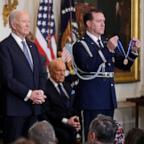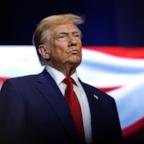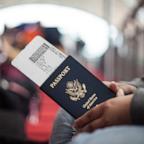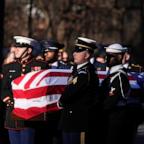Cohen says he didn't want info getting back to Trump
Jurors saw an April 21, 2018, email where Michael Cohen's attorney at the time, Robert Costello, told Cohen, "Sleep well tonight, you have friends in high places."
"The friend in high places was President Trump," Cohen testified.
"It let me know that I was still important to the team, and stay the course, that the president had my back," Cohen said about Costello's emails.
Jurors then saw another email from Costello dated June 13, 2018.
"Since you jumped off the phone rather abruptly, I did not get a chance to tell you that my friend has communicated to me that he is meeting with his client this evening and he added that if there was anything you wanted to convey, you should tell me and my friend will bring it up for discussion this evening," Costello wrote.
According to Cohen, the aforementioned client was Donald Trump.
Asked about the vagueness of the email, Cohen testified that it was "sort of to be covert -- it is all back channel. Sort of eye spy-ish. Didn't want to put anybody's name."
Jurors then saw a June 2018 email between Cohen and Costello that suggested their relationship had begun to fray.
"I must tell you quite frankly that I am not used to listening to abuse like today's conversation," Costello wrote, referencing an "unfortunate outburst" by Cohen.
"Please remember if you want or need to communicate something, please let me know and I will see that it gets done. I hope I am not wrong but it seems to both Jeff and I that perhaps we have been played here," Costello wrote, referencing the back channel to Trump.
Cohen told the jury he was concerned about his communications with Costello making their way to Trump, and he began looking for other lawyers.
Cohen said Costello was "again pressuring me as he had done with constant calls and sending me emails and so on. He wanted to absolutely be retained to represent me in this matter. He was angered that I was willing to sit down with another attorney but not sit down with them, so I had enough."





